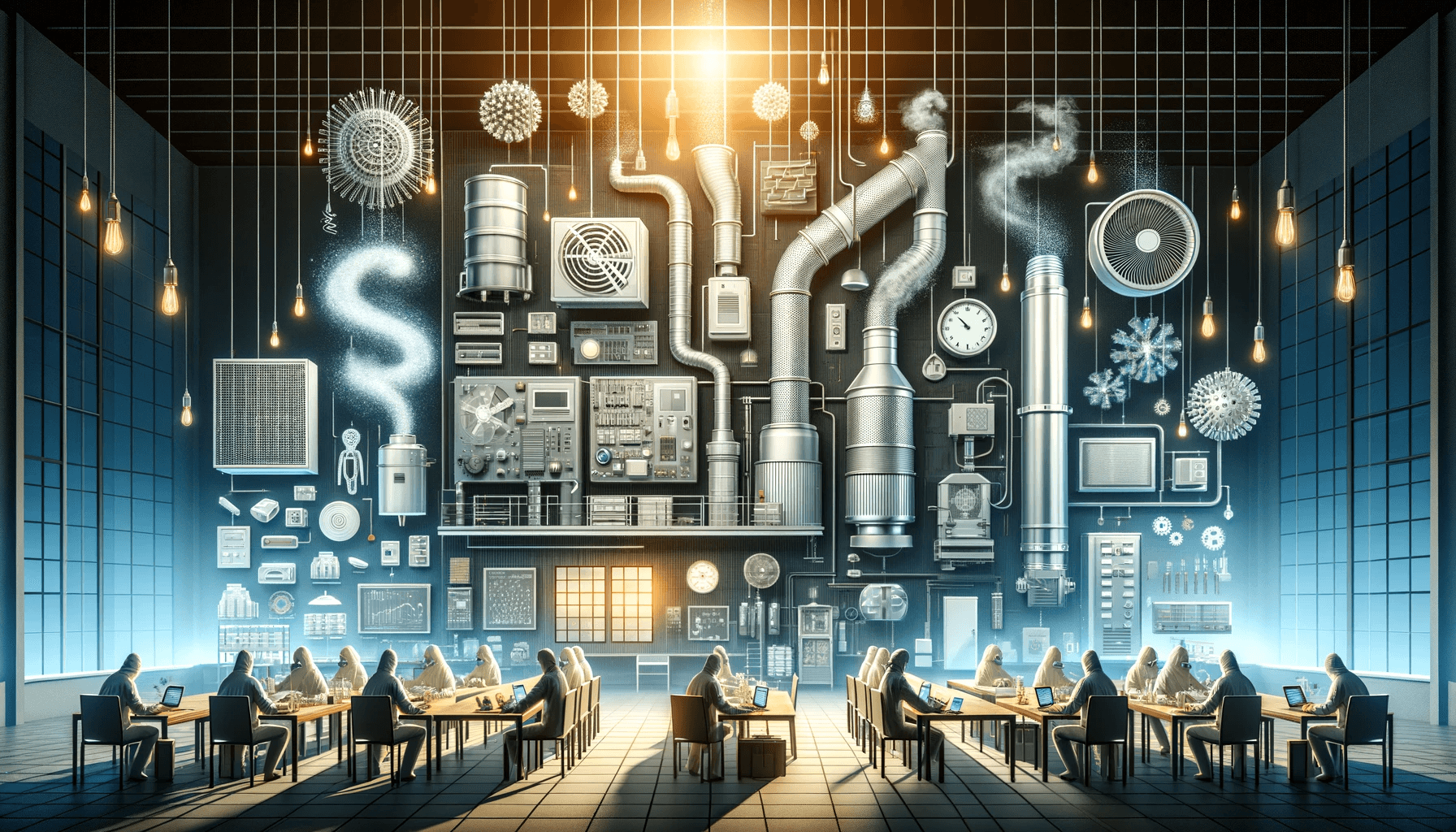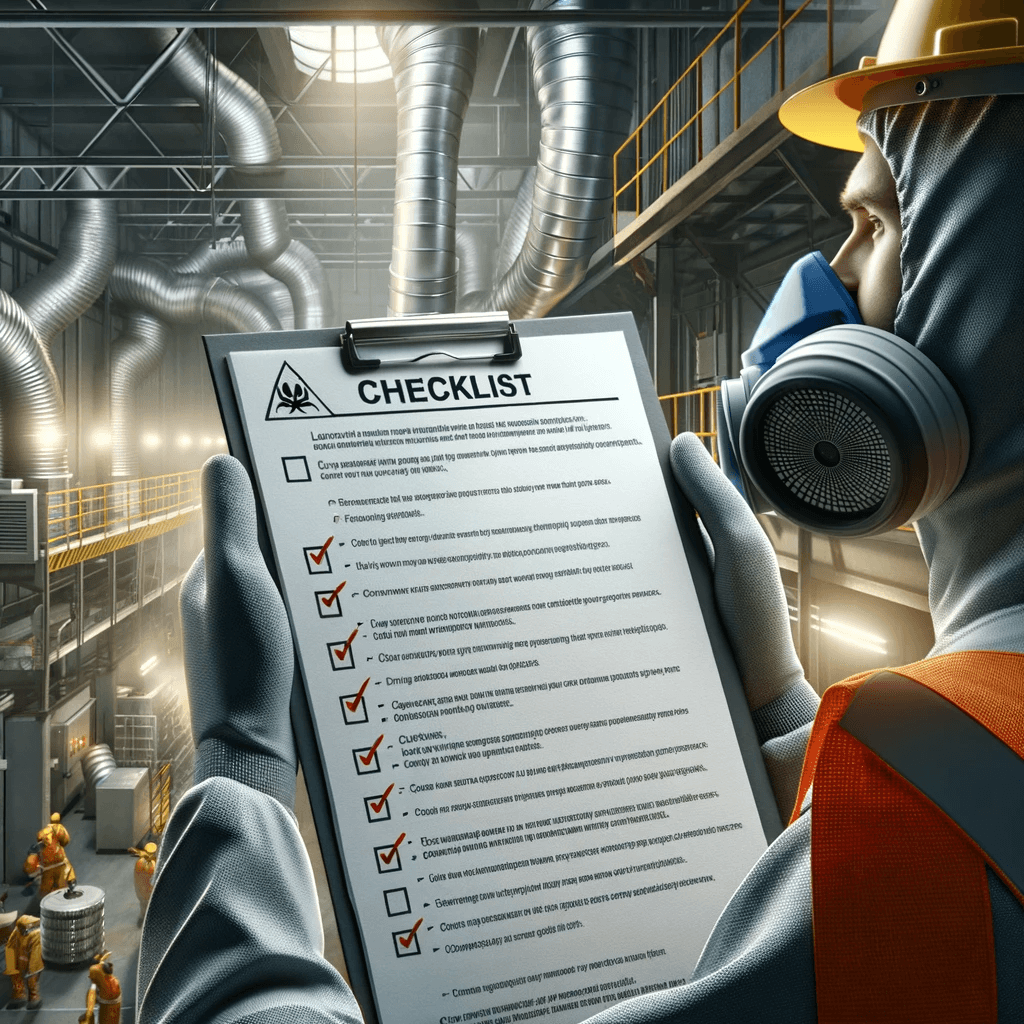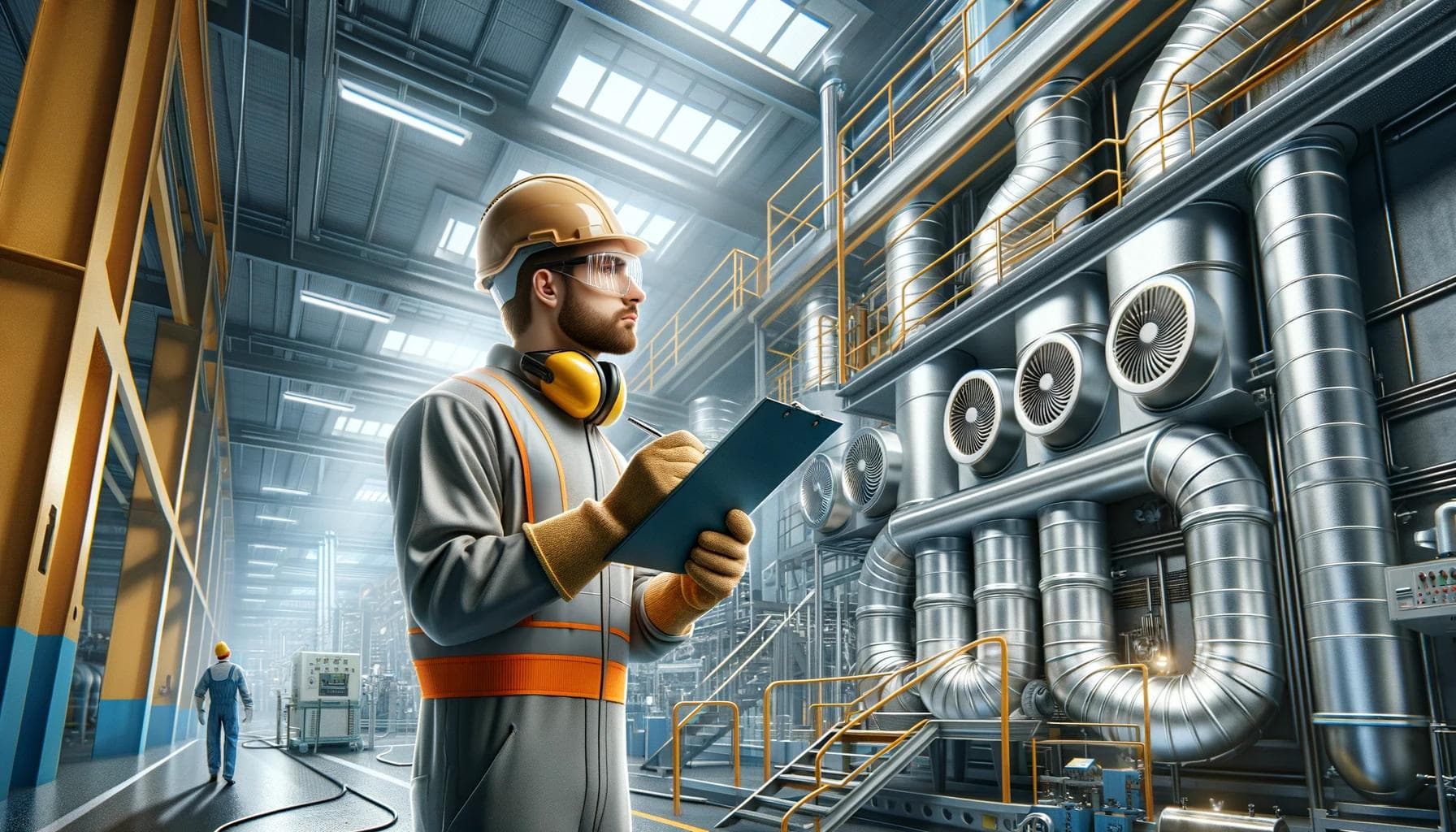The Impact of Regular LEV Servicing on System Performance
Introduction to Local Exhaust Ventilation Systems
As an integral component of industrial safety and operational efficiency, Local Exhaust Ventilation (LEV) systems play a critical role in maintaining a clean and healthy work environment. Their purpose is to extract harmful airborne contaminants before they can be inhaled by workers. However, the efficacy of LEV systems hinges on their condition and performance, which are directly influenced by regular maintenance and servicing.
Why Regular LEV Servicing is Crucial
LEV systems are designed to handle a variety of hazardous substances, including dust, fumes, and vapours. Regular LEV servicing is not just a regulatory requirement; it's a critical practice that guarantees your LEV system functions at its best, ensuring the safety of your employees and the environment. Without proper maintenance, the performance of your LEV system can degrade, leading to potential health risks and non-compliance with legal standards.
Ensuring Compliance and Worker Safety
Regular servicing ensures that your LEV system complies with the Control of Substances Hazardous to Health (COSHH) Regulations. Servicing by professionals will help identify any issues that could compromise worker safety or lead to legal ramifications.
Optimising System Performance
Over time, LEV components such as filters, hoods, and ductwork can become clogged or damaged. Regular maintenance ensures that every part of your system is functioning correctly, reducing energy consumption and improving extraction efficiency.
Extending Equipment Lifespan
With scheduled servicing, you prevent excessive wear and tear on your system, which can result in costly repairs or replacements. Regular checks can significantly extend the lifespan of your LEV system.
The Benefits of LEV System Performance
A well-maintained LEV system not only complies with legal requirements but also brings a host of benefits to your industrial operations:
- Enhanced Air Quality: Regular servicing maintains optimal air filtration and extraction, ensuring a healthier workplace.
- Energy Efficiency: A clean and well-serviced LEV system operates more efficiently, which can lead to lower energy bills.
- Reduced Downtime: By preventing unexpected breakdowns, regular servicing minimises operational disruptions.
- Better Product Quality: Clean air means less contamination during manufacturing processes, resulting in higher-quality products.
- Increased Worker Morale: A safe and clean environment improves overall job satisfaction and productivity amongst your workforce.
How Often Should LEV Servicing Be Conducted?
It is recommended that an LEV system undergoes thorough LEV testing and examination at least once every 14 months. However, the frequency can vary depending on several factors such as the type of contaminants handled, usage patterns, and the specific demands of your industrial processes.
Signs Your LEV System Needs Servicing
Visible dust or fumes escaping from the system.
A noticeable reduction in air extraction efficiency.
Strange noises or vibrations during operation.
Increased energy consumption without a clear cause.
Choosing a Professional LEV Servicing Provider
Selecting a competent service provider for your LEV system is vital. A professional service by an experienced provider like WBT Services Ltd ensures that your system is assessed, serviced, and maintained properly. An expert team will not only conduct comprehensive LEV servicing, but they will also provide you with actionable insights on how to optimise your system for better performance.
Conclusion
In conclusion, regular LEV servicing is a non-negotiable aspect of managing an industrial facility. It ensures that your LEV system operates at peak performance, providing a safe and compliant work environment. By investing in routine servicing, you're not only protecting your workforce but also enhancing the operational efficiency of your business. Remember, a well-maintained LEV system is a reflection of your commitment to excellence and safety in industrial operations.
Get in Touch
If you're ready to improve the performance of your LEV system, contact WBT Services Ltd today. Our experienced technicians are standing by to provide you with industry-leading maintenance and servicing solutions. Let us help you ensure that your industrial systems are functioning at their best, safeguarding your employees and your business.
FAQs
Why is regular servicing of LEV systems important?
Regular servicing of LEV systems is crucial to ensure that they function optimally, keeping the workplace environment safe from harmful airborne contaminants. It helps maintain compliance with COSHH Regulations, optimizes system performance by preventing clogs or damage, reduces energy consumption, and extends the equipment's lifespan. Without proper maintenance, systems can degrade, leading to potential health risks and legal ramifications.
What are the benefits of maintaining a well-serviced LEV system?
A well-maintained LEV system provides enhanced air quality by maintaining optimal air filtration, improving energy efficiency, and reducing operational downtime. It also contributes to better product quality by minimizing contamination during manufacturing processes and boosts worker morale by providing a safer and cleaner working environment.
How frequently should LEV servicing be conducted?
An LEV system should undergo thorough testing and examination at least once every 14 months. However, this can vary depending on the type of contaminants handled, usage patterns, and the demands of specific industrial processes. It's important to watch out for signs such as visible dust or fumes, reduced air extraction efficiency, strange noises, vibrations, or an unexplained increase in energy consumption, which may indicate the system needs servicing sooner.
Key Takeaways
1. Regular servicing of Local Exhaust Ventilation (LEV) systems is critical for maintaining a healthy work environment and complying with the Control of Substances Hazardous to Health (COSHH) Regulations. Skilled professionals should conduct servicing to detect and rectify any issues that may compromise worker safety or result in legal consequences. This helps in ensuring that the system operates efficiently, reducing the likelihood of employee health risks due to exposure to harmful airborne contaminants.
2. A well-maintained LEV system is not only a compliance matter but also brings operational benefits. It enhances air quality, leading to a healthier workplace; increases energy efficiency, which can lower energy costs; reduces downtime, minimizing operational disruptions; improves product quality through reduced contamination; and boosts worker morale, which in turn can enhance productivity.
3. LEV systems require thorough inspections and servicing at least every 14 months, with the frequency adjusted based on factors like contaminant types, usage patterns, and specific industrial process demands. Facility managers must be vigilant for signs indicating the necessity for more frequent servicing, such as visible emissions from the system, decreased extraction efficiency, unusual noises, or unexplained increases in energy usage.


